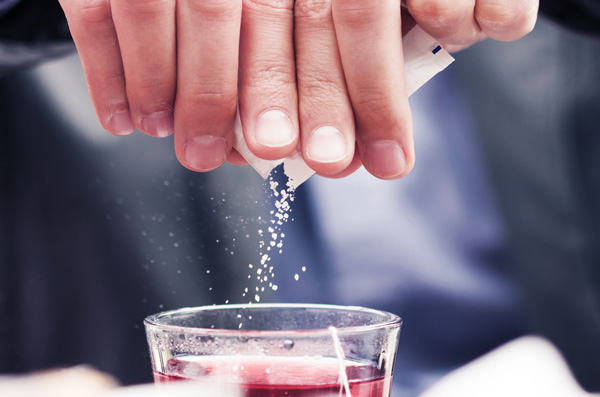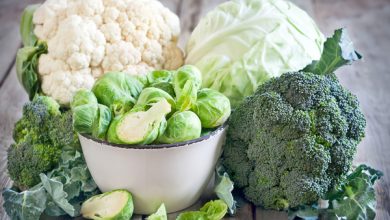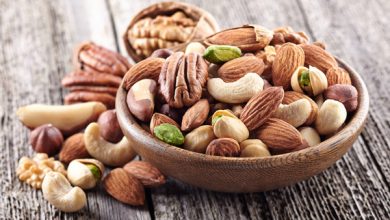Keto Foods & Cooking
If I can’t have sugar, which sweeteners can I use on Keto?

Sugar is off limits on a Ketogenic (Keto) diet, but you can still eat things that taste sweet while following the keto diet. You just need to learn about right types of sweeteners to use. We’re going to cover 4 best sweeteners for a low-carb keto diet and why.
What Defines a Keto-Friendly Sweetener?
What do these keto sweeteners have in common?
Low Glycemic
The glycemic index (GI) has to do with how much a food raises blood sugar (glucose). It runs from zero -100, with zero representing unchanged blood sugar and insulin levels. The aim on the Ketogenic diet is to remain in ketosis, so staying as close as possible to zero GI for sweeteners is the best choice.
Sugar-Free
It’s necessary to avoid added sugars is on keto. You’re teaching your body to burn fat for energy instead of carbs. The number of carbs you eat should be kept very low. Even fruit should be severely limited, preferably eliminated, so it makes sense that anything with added sugars is a no-no.
Low Carb
Another obvious guideline when you’re doing keto: low- or no-carb sweeteners are a must if you want to stay in ketosis.
Top 4 Low-Carb Keto Diet Sweeteners
With those guidelines in mind, these are the 4 best sweeteners for a low-carb Keto diet:
#1 Stevia
Stevia is made from an extract of the herb Stevia Rebaudiana. It has no calories, no carbs and is zero on the glycemic index. It is also 200-300 times sweeter than table sugar. The tiniest bit imparts a sweet taste to foods.
Benefits of using Stevia:
Besides being zero everything, studies show stevia benefits blood sugar and insulin levels after eating. It also has compounds like apigenin and quercetin, which reduce oxidative stress.
Stevia comes in powder or liquid form (drops). The bitter aftertaste has been improved and removed.
With powdered stevia be sure it is free of fillers like maltodextrin, dextrose, cane sugar, or even artificial sweeteners. All these boost blood sugar, contain hidden carbs and have negative side effects you don’t want.
#2 Erythritol
Erythritol is another white, powdery sweetener. It’s classified as a sugar alcohol, which sounds scary, but it’s found in many foods, mostly (fruits and vegetables) and doesn’t seem to have negative side effects when used in moderation. Its chemical structure gives it a sweet taste without the side effects of sugar.
Benefits of choosing Erythritol:
Like stevia, erythritol has a glycemic index of zero. It’s very low in calories (about 0.24 calories per gram, which is only 6% of the calories in sugar). Erythritol is not as sweet as sugar, so you need to use a little more of it to get the sweetness you’re accustomed to adding.
Sugar alcohols can upset your stomach with mild cramping or bloating. Unlike the other sugar alcohols, almost all of the erythritol gets absorbed into the bloodstream by the small intestine before passing through as waste in the urine. It doesn’t affect the colon like the others.
You can find 100% pure erythritol at the store, as well as certain brands that combine erythritol with other ingredients. Just make certain it doesn’t have additives that boost your carb count and affect blood sugar.
#3 Monk Fruit
Monk fruit sweetener is made from the antioxidants in the fruit, which offers a low-calorie sweetness without the insulin spikes of sugar. Monk fruit was originally grown and harvested in small amounts from family orchards in forested mountains. As its popularity grows, it’s now being grown and distributed all over the world.
Benefits of using Monk Fruit:
Like stevia and erythritol, monk fruit scores a zero on the glycemic index and may even have a stabilizing effect on blood sugar. Unlike stevia, monk fruit never has a bitter aftertaste. A little goes a long way since it’s also around 300 times sweeter than sugar.
The sweetness of monk fruit derives from compounds known as Mogrosides. Research shows it may halt tumor growth in pancreatic cancer.
There are no known health concerns from using monk fruit, as long as you stay away from any monk fruit products with added carbs or fillers. Monk fruit is more costly than stevia or erythritol and not as widely available.
#4 Swerve
This one sounds like it shouldn’t have made the list. Swerve is actually a combination of erythritol, natural citrus flavor, and oligosaccharides. Those are where the product gets interesting: oligosaccharides are carbohydrates created by adding enzymes to starchy root vegetables. You’re thinking, huh? Carbs? Starches? The reason why it is still keto friendly the body doesn’t digest them so they have no effect on blood sugar.
Swerve is found at most health food stores and is becoming more popular in mainstream grocery stores.
Benefits of choosing Swerve:
Swerve is no-calorie, all-natural, has a zero glycemic index, and is fantastic for baking because it can be browned and caramelized just like everyday cane sugar. As you can imagine this makes it really useful for baking dessert keto recipes. Not only that, the prebiotics in the oligosaccharides of Swerve may stimulate beneficial gut bacteria.
The advantage of Swerve over pure erythritol is that it can be easier use as an equal substitution when replacing sugar in a recipe. although it does have small amounts of carbs, they’re indigestible carbs.
Artificial Sweeteners
Many of the common artificial sweeteners (sucralose, aspartame, Splenda) are technically low glycemic and low in calories. Be cautious though, in some, they affect blood sugar, lead to cravings, and disrupt hormones and ketosis. You’re better off avoiding them on a keto diet.
Stick with natural sweetener alternatives. These let you enjoy treats here and there without worrying about the effects of sugar-filled cheats.




